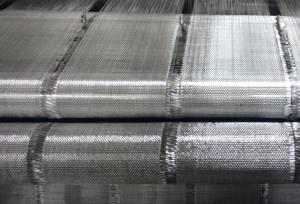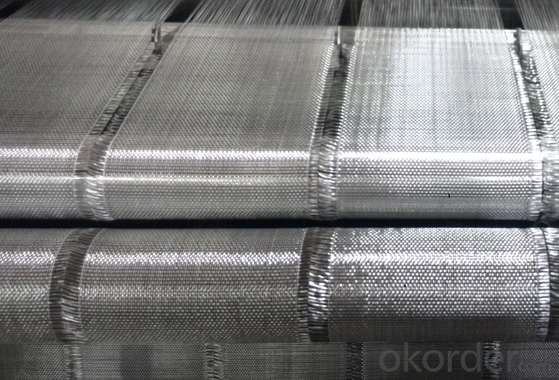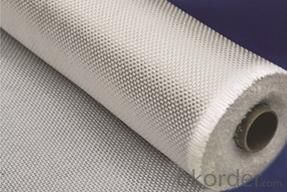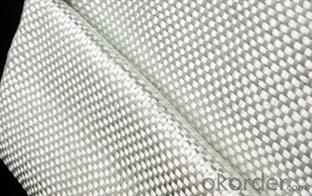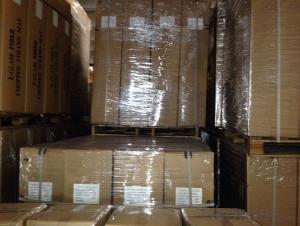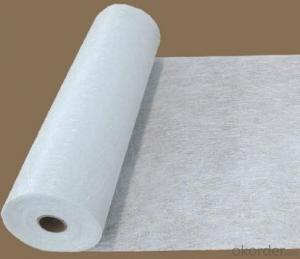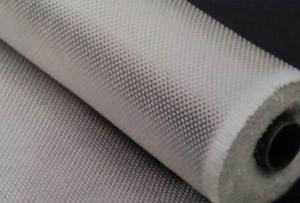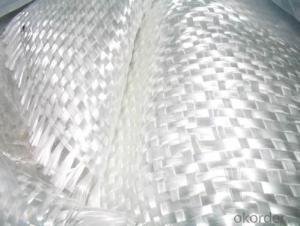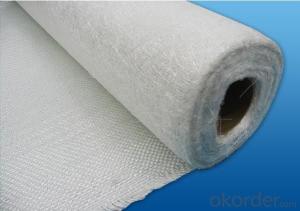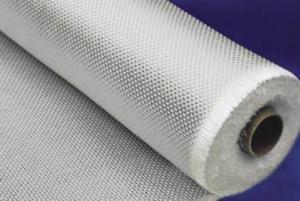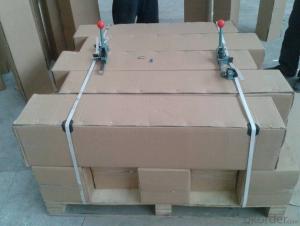Fiberglass Mat Tissue for Boat Production Glass Fiber Woven Roving
- Loading Port:
- Shanghai
- Payment Terms:
- TT or LC
- Min Order Qty:
- 2000 m²
- Supply Capability:
- 50000 m²/month
OKorder Service Pledge
OKorder Financial Service
You Might Also Like
Structure of woven roving Description
1.Glass Woven Roving are bidirectional fabric made by direct roving in plain weave pattern . 2.High quality roving 3.Skilled workers to operate, to ensure the quality of fabric 4. Any width we can operate 5.Perfact packing 6.including the EWR200.EWR400,EWR570....cwr135,cwr180.cwr200.cwr500..... 7.The details as per customer requriments
Main Features of the woven roving
1. Low Fuzz,dirt,impurity and other stains.......
2. Fast wet-out.
3. Even thickness
4.Good covering
Woven roving Images:
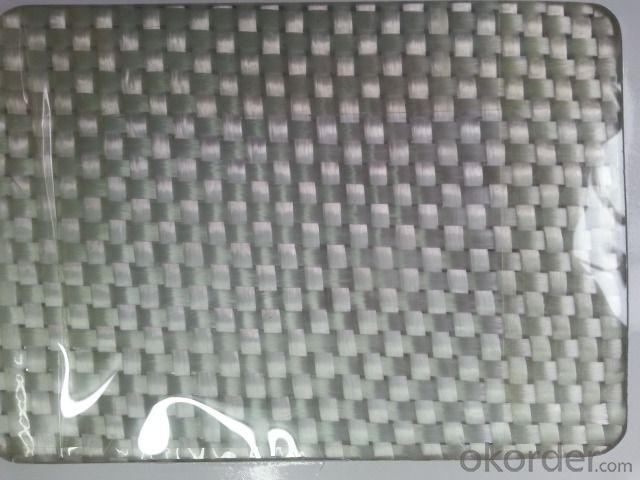
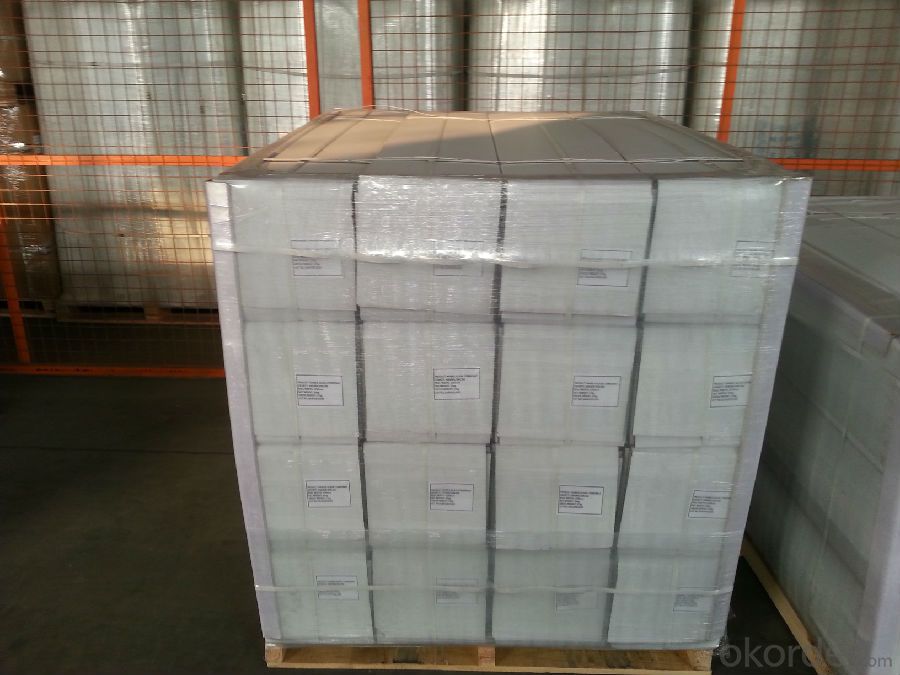
Woven roving Specification:
Normal type | EWR800-1000 | Test Standard |
Apperance | Good | GB/T 18370-2001 |
Density(warpxweft)(end/cm) | 1.8 X 1.5 | GB/T 7689.2-2001 |
Tex (warpxweft) | 2400x2400 | ISO1889 |
Moisture content(%) | ≤0.10 | ISO3344 |
Loss on ignition(%) | 0.40-0.80 | ISO1887 |
Glass | E-glass | N/A |
FAQ of woven roving:
Woven Roving is a high –performance reinforcement widely used in hand lay-up and machanical production
1) Good moldability & drapability
2) High strength
3) Excellent rollout characteristics
4) Fast wet -out
- Q: Can fiberglass mat tissue be used for windbreak panels?
- Windbreak panels can utilize fiberglass mat tissue, which functions as a lightweight and flexible material. This material is commonly utilized in insulation, reinforcement, and structural support applications. It is recognized for its durability, high strength-to-weight ratio, and ability to withstand various weather and environmental conditions. By incorporating fiberglass mat tissue into windbreak panels, additional reinforcement and stability are provided. This reinforcement allows the panels to endure strong winds without experiencing damage or breakage, rendering fiberglass mat tissue an effective choice for windbreak panels. Furthermore, fiberglass mat tissue possesses exceptional thermal and acoustic insulation properties. This feature contributes to the reduction of noise and regulation of temperature within windbreak panels, thus creating a more comfortable and protected environment. Additionally, this material is fire-resistant, ensuring the safety of windbreak panels. In summary, considering its strength, durability, insulation properties, and resistance to environmental conditions, fiberglass mat tissue proves to be a suitable and dependable material for windbreak panels.
- Q: Can fiberglass mat tissue be used for flooring insulation?
- No, fiberglass mat tissue is not typically used for flooring insulation. Fiberglass mat tissue is a lightweight material often used in the construction industry for applications such as reinforcing plaster and concrete, as well as for insulation in walls and ceilings. However, when it comes to flooring insulation, other materials such as foam boards or batt insulation are more commonly used. These materials provide better thermal and sound insulation properties specifically designed for flooring applications. Additionally, foam boards and batt insulation are easier to install and are better suited to withstand the pressures and demands of foot traffic on the flooring.
- Q: Is fiberglass mat tissue suitable for wastewater treatment applications?
- Fiberglass mat tissue is indeed suitable for wastewater treatment applications. This material exhibits resistance to chemicals, corrosion, and degradation, rendering it a prime option for a range of industrial uses, including wastewater treatment. Its versatility allows for its utilization as filtration media, effectively separating solid particles from wastewater. It can also serve as a lining material, preventing corrosion in tanks and pipes, as well as reinforcing concrete structures employed in wastewater treatment plants. Moreover, fiberglass mat tissue boasts exceptional mechanical strength, dimensional stability, and thermal resistance, further bolstering its suitability for wastewater treatment purposes. Overall, this material proves itself as a dependable and efficient choice for employment in wastewater treatment procedures.
- Q: Is fiberglass mat tissue resistant to mold growth?
- Indeed, mold growth is effectively resisted by fiberglass mat tissue. The composition of fiberglass involves the interlacing of tightly woven glass fibers, yielding a substance highly impervious to moisture and mold. Moreover, fiberglass possesses a non-porous nature, signifying its inability to absorb water, thereby further deterring the proliferation of mold. Consequently, fiberglass mat tissue emerges as an optimal selection for circumstances necessitating mold resistance, such as insulation, wallboards, and various construction materials.
- Q: How is fiberglass mat tissue made?
- Fiberglass mat tissue is made through a process called wet-laid process, which involves several steps. First, glass fibers are created by melting and extruding glass through small holes to form continuous filaments. These filaments are then coated with a sizing agent to improve their handling properties and strengthen the final product. Next, the glass fibers are chopped into short lengths to create a fiber mat. This is usually done using a knife or a rotary chopper. The chopped fibers are then collected and formed into a thin layer on a moving conveyor belt. In parallel to this, a binder solution is prepared by mixing a synthetic resin with water. This solution is then sprayed onto the fiber mat to wet and bind the fibers together. The amount of binder used determines the strength and flexibility of the final product. To ensure uniform distribution of the binder and proper consolidation of the mat, it passes through a series of rollers. These rollers apply pressure to remove excess water, squeeze the fibers together, and promote bonding between the fibers. Once the mat is consolidated and the desired thickness is achieved, it is dried in an oven or through hot air currents. This removes any remaining moisture and cures the binder, transforming it into a solid resin. After drying, the fiberglass mat tissue is wound into rolls for storage or further processing. It can be used as a reinforcing material in various industries, such as construction, automotive, and aerospace, due to its excellent strength, corrosion resistance, and thermal insulation properties.
- Q: Is fiberglass mat tissue suitable for automotive panel repairs?
- Yes, fiberglass mat tissue is suitable for automotive panel repairs.
- Q: What are the recommended storage and handling practices for fiberglass mat tissue?
- When it comes to the storage and handling of fiberglass mat tissue, there are a few recommended practices that should be followed to ensure its integrity and longevity. 1. Storage: It is important to store fiberglass mat tissue in a clean and dry environment. This helps prevent any moisture or dirt from damaging the material. Ideally, it should be stored indoors away from direct sunlight and extreme temperatures. 2. Handling: Fiberglass mat tissue is a delicate material that can be easily damaged if not handled properly. It is recommended to wear protective gloves and safety glasses when handling it to prevent any injuries. Additionally, it should be handled with care to avoid any tears or creases that may compromise its performance. 3. Transportation: During transportation, it is crucial to pack fiberglass mat tissue in a way that minimizes the risk of damage. It should be securely packaged and protected from any potential impact or vibration. If possible, it is best to transport it in a dedicated vehicle or container to ensure its safety. 4. Avoid contact with chemicals: Fiberglass mat tissue should not come into contact with chemicals such as acids, alkalis, or solvents. These substances can cause degradation and weaken the material. It is important to handle it with clean hands and avoid any contact with substances that may be harmful. 5. Follow manufacturer's guidelines: It is always advisable to follow the specific recommendations provided by the manufacturer regarding the storage and handling of fiberglass mat tissue. Different manufacturers may have slightly different requirements, and it is important to adhere to them for optimal performance and longevity. By following these recommended storage and handling practices, you can ensure that fiberglass mat tissue remains in good condition, ready for its intended use.
- Q: What is the delamination strength of fiberglass mat tissue?
- The ability of fiberglass mat tissue to resist the separation or detachment of its layers, known as delamination strength, is influenced by various factors. These factors include the quality of the resin used, the thickness and density of the mat, and the manufacturing process. To ensure durability and structural integrity, fiberglass mat tissue is typically designed with a high delamination strength. It is composed of multiple layers of glass fibers held together by a binder or resin. The bonding between these layers is crucial in preventing delamination. Various testing methods, such as the peel test, can determine the delamination strength of fiberglass mat tissue. This test measures the force required to separate the layers and provides valuable information about the adhesive strength between them, helping to assess the material's overall quality. The delamination strength may vary depending on the specific application and requirements. Different industries, such as construction, automotive, marine, and aerospace, may have different delamination strength specifications for their fiberglass mat tissue. Manufacturers typically provide technical data or specifications indicating the delamination strength of their products. It is important to consider external factors that can influence the delamination strength of fiberglass mat tissue, such as exposure to extreme temperatures, moisture, or chemical substances. Proper installation, maintenance, and adherence to recommended usage guidelines are crucial in maintaining the desired delamination strength and overall performance of the material.
- Q: Is fiberglass mat tissue resistant to corrosion?
- Indeed, corrosion is not a concern for fiberglass mat tissue as it is comprised of non-metallic elements like glass fibers, unlike metals which are susceptible to rust and corrosion. This quality renders fiberglass mat tissue highly suitable for various purposes that demand resistance against corrosion, such as reinforcing concrete structures within the construction sector or for boat building in the marine industry. Furthermore, fiberglass mat tissue exhibits resistance towards chemicals, moisture, UV rays, and extreme temperatures, thereby augmenting its strength and longevity.
- Q: Is fiberglass mat tissue resistant to mildew and rot?
- Yes, fiberglass mat tissue is resistant to mildew and rot.
Send your message to us
Fiberglass Mat Tissue for Boat Production Glass Fiber Woven Roving
- Loading Port:
- Shanghai
- Payment Terms:
- TT or LC
- Min Order Qty:
- 2000 m²
- Supply Capability:
- 50000 m²/month
OKorder Service Pledge
OKorder Financial Service
Similar products
Hot products
Hot Searches
Related keywords
